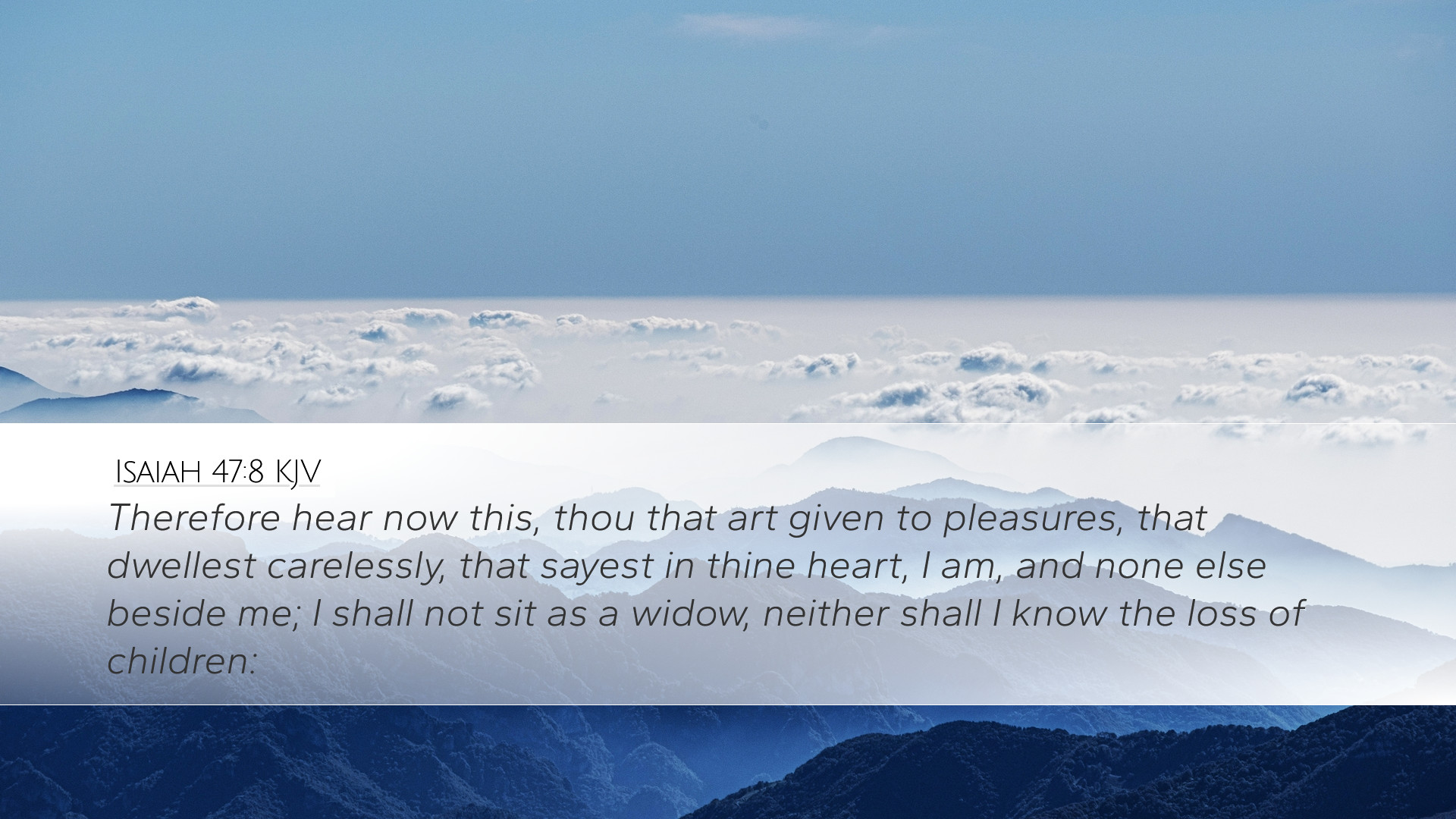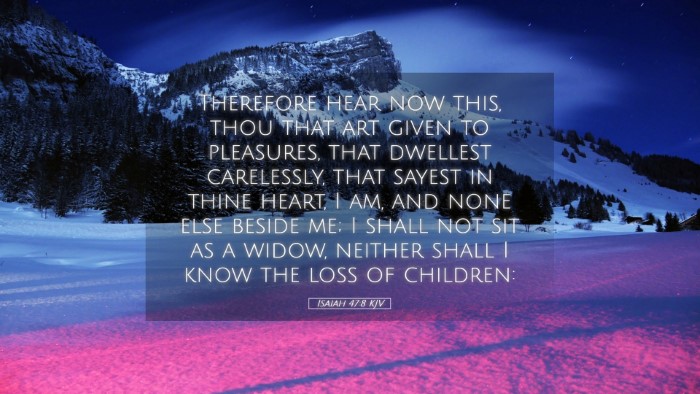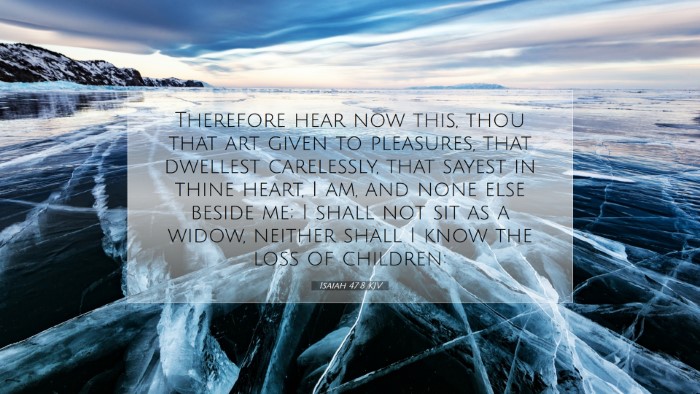Commentary on Isaiah 47:8
Verse (Isaiah 47:8): “Therefore hear now this, thou delicate one, that dwellest carelessly, that sayest in thine heart, I am, and none else beside me; I shall not sit as a widow, neither shall I know the loss of children.”
Introduction
The verse we examine today is part of a larger oracle against Babylon, a prominent symbol of pride and arrogance in the biblical narrative. This commentary synthesizes insights from Matthew Henry, Albert Barnes, and Adam Clarke, providing a profound exploration of the implications of this text for our understanding of divine judgment, human pride, and the ultimate sovereignty of God.
The Context of Isaiah 47
The chapter in which this verse is located addresses the impending fall of Babylon. Isaiah speaks as a prophet of God, revealing the ultimate fate of a city that embodies moral laxity, self-sufficiency, and hubris. Babylon’s lifestyle and attitudes serve as a warning to nations and individuals who disregard God’s authority.
Key Themes
- The Illusion of Security: The phrase “I am, and none else beside me” reflects Babylon’s confidence in its supremacy. As Barnes notes, this illustrates the deluded sense of security that arises from worldly power. The attachment to earthly greatness leads to complacency and a failure to recognize divine sovereignty.
- Judgment and Consequences: Henry emphasizes that God’s judgment is not arbitrary but a necessary response to arrogance. The message warns that those who dwell carelessly, apart from God’s guidance, will ultimately face the consequences of their actions.
- The Distinction of the Delicate One: The ‘delicate one’ refers not only to Babylon but to any civilization or individual that indulges in a false sense of invulnerability. Clarke suggests examining the metaphor to understand how delicacy can denote vulnerability masked by apparent strength.
- The Feminine Imagery of Loss: The reference to widows and the loss of children evokes themes of dire consequences associated with loss. Henry elaborates on this imagery, noting that these represent the ultimate vulnerability of those who have placed their trust in temporal power.
Analysis of Key Phrases
The verse begins with a forceful summons: “Therefore hear now this.” This imperative indicates urgency and emphasizes the need for reflection. Isaiah’s call is directed to the “delicate one,” a term that conveys both vulnerability and arrogance.
The phrase “that dwellest carelessly” depicts an attitude of neglect towards the spiritual realities surrounding the individuals in Babylon. Both Barnes and Clarke highlight how this carelessness blinds individuals to their true condition—spiritually impoverished and ultimately vulnerable.
Furthermore, when Babylon asserts, “I shall not sit as a widow, neither shall I know the loss of children,” it expresses an unwavering confidence devoid of humility. This audacity overlooks the impending judgment heralded by God’s prophets. Henry elaborates that this declaration by Babylon is a crass misunderstanding, assuming that temporal prosperity will never falter.
Spiritual Lessons
- Recognition of God’s Sovereignty: Proper recognition of God’s supremacy is crucial for any community or individual. The self-assertive nature of Babylon exhibits a broader modern tendency of civilizations to neglect divine authority in pursuit of self-interest.
- Cultivating Humility: The urgent warning to the proud highlights the necessity for humility. Recognizing our dependence on God invites His blessings and protection, while pride begets vulnerability and judgment.
- The Fragility of Worldly Power: This passage serves as a reminder that earthly power is transient. As Clarke points out, all empires and powers—regardless of their might—are subject to divine judgment and cannot secure themselves against the inevitable act of God.
- Awareness of Consequences: The imagery of loss reminds us that our choices have consequences. Understanding the nature of judgment against those who live carelessly is essential for fostering a life aligned with God’s will.
Conclusion
Isaiah 47:8 serves as a poignant reminder of the dangers of spiritual complacency and the need for a heartfelt recognition of God’s sovereignty. Through the combined insights of Matthew Henry, Albert Barnes, and Adam Clarke, we glean a deeper understanding of the balance between human confidence and divine authority.
This verse not only warns about the fate of Babylon but also calls modern readers—pastors, students, theologians, and scholars—to examine their own lives and attitudes. We must strive to avoid the trap of self-sufficiency and embrace a life rooted in humility before the Almighty Creator.


